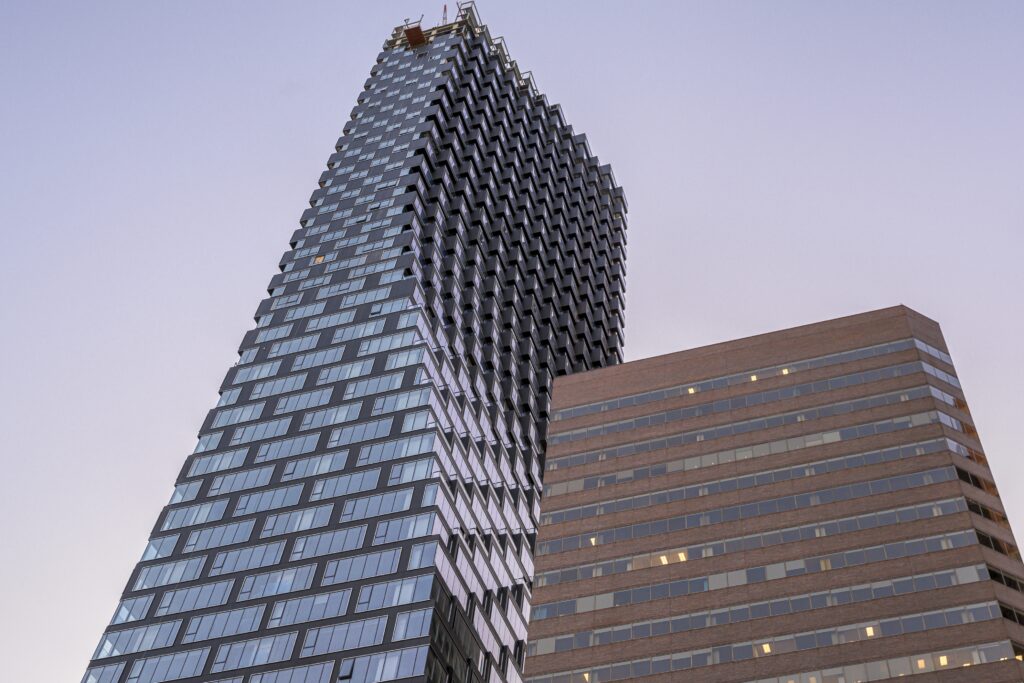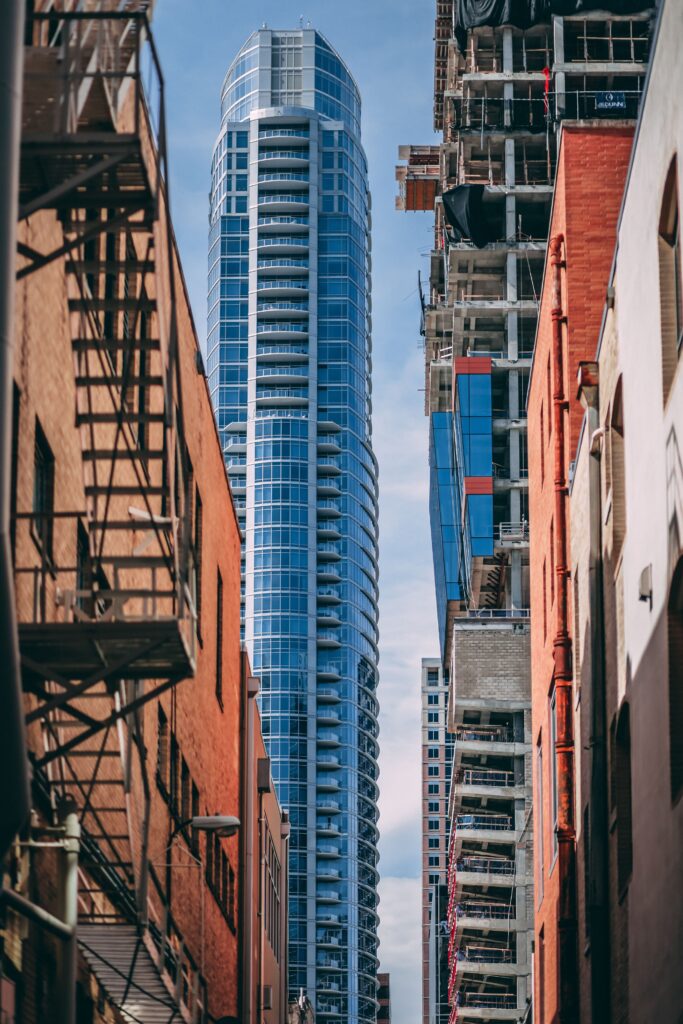San Francisco Premises Liability Lawyer
A property owner has a duty to use due care and to act affirmatively so that his or her property does not create an unreasonable risk of harm to others. For example, if while on someone’s property, a person sustains an electric shock from an exposed wire, slips on slick flooring, or falls down an unlit stairwell, the property owner may be liable for damages.
If you suffered injuries while visiting another person’s property, you should reach out to our skilled San Francisco premises liability lawyers. Our knowledgeable personal injury attorneys can explain your legal rights and help you overcome the hurdles of pursuing compensation.
Duty of Care in Premises Liability Cases
 Landowners have a duty to maintain their property in a reasonable manner so as to prevent injuries to their visitors. Additionally, landowners have a legal obligation to warn visitors of any potentially hazardous conditions on their property. If a court determines that a landowner failed to reasonably meet these standards of care, the landowner could be liable for injuries that a visitor sustains while on the landowner’s property.
Landowners have a duty to maintain their property in a reasonable manner so as to prevent injuries to their visitors. Additionally, landowners have a legal obligation to warn visitors of any potentially hazardous conditions on their property. If a court determines that a landowner failed to reasonably meet these standards of care, the landowner could be liable for injuries that a visitor sustains while on the landowner’s property.
Many injuries are caused by physical assaults, lack of or ineffective security personnel or insufficient lighting. Other serious incidents include exposure to toxic materials, animal attacks, swimming pool accidents, balcony accidents, and amusement park ride accidents. Our team of attorneys will work hard to prove that the property owner should have known the danger and failed to take appropriate actions to prevent a claimant’s injuries.
It is important to note that property owners can be liable for the actions of their employees. Property owners have a duty of care to hire, train, and supervise their employees to ensure the safety of their visitors. Additionally, delegating duties related to the maintenance of the property to a third-party does not shield a property owner from potential liability.
State law categorizes visitors into three different categories: trespassers, invitees, and licensees. These distinctions come into play when the court evaluates whether a defendant acted reasonably within their legal duty of care depending on the circumstances.
Our San Francisco lawyers have experience litigating premises liability cases and can assess a claimant’s case to determine if a defendant may be liable based on the circumstances of the case and the behaviors of the property owner.
Can I Still Get Compensation if I Was Trespassing?
Generally speaking, it is much more difficult for a trespasser to gain compensation after an injury compared to someone who was on the premises legally.
That being said, there are a few situations in which trespassers might be able to successfully sue property owners for damages. If a property owner is aware of serious hazards on their property, they have a duty of care to address these hazards. If property owners are aware of trespassing individuals and they still do nothing to address these hazards, they may be found liable by a jury.
The likelihood of a trespasser gaining compensation also depends on a number of other factors. These include the severity of the injury, the likelihood of trespassers coming onto the property, and the location of the property itself. For example, people who own rural property in the middle of nowhere cannot “reasonably” expect trespassers to come onto their land. On the other hand, those who own property with a long history of trespassing issues might “reasonably” be expected to address safety hazards. Willful and malicious misconduct by the property owner is never allowed, such as setting bear traps or electric fences on the property.
The Defendant’s Duties Do Not Depend on the Plaintiff’s “Classification”
While classifications such as licensee, invitee, and trespasser are important to understand, California courts may disregard them entirely when assessing a defendant’s duties of care. In other states, these classifications are much more important, and they impact how a defendant is viewed in court. In California, the classification of a plaintiff simply does not factor into the equation when assessing the defendant’s duties. That being said, courts may consider the status of plaintiff as a licensee, invitee, or trespasser while on the defendant’s property to assess the reasonableness of D’s behavior.
Common Defenses to Premises Liability Lawsuits
As you approach your premises liability lawsuit, you should be aware of how the defendant will try to avoid legal consequences. There are a number of common defenses that they may try to employ in court. Understanding these defenses gives you a better chance of countering them and achieving a favorable legal outcome.
- A defendant may try to argue that the hazard was extremely obvious and that any reasonable individual should have had the foresight to avoid this dangerous condition. They will likely use the legal phrase “open and obvious” when describing the dangerous condition in question. The “obvious danger” exception to a landowner’s duty of care has been described as a recharacterization of the former doctrine of secondary assumption of the risk—i.e., where a danger is obvious, plaintiff must have realized it and assumed the risk of injury. Secondary assumption of the risk is now subsumed into comparative negligence.
- A defendant may argue that the plaintiff was “misusing” the property, and this is what led to the injury. A property owner can do everything they can to try to ensure the safety of individuals, but they cannot realistically prepare for the potential for people to misuse their property.
- A defendant may also try to argue that the injured individual was actually aware of the dangerous condition before going onto the property. For example, the injured person might have passed clear signage warning them of the hazard before becoming injured.
- Another common defense is the “trivial defect defense.” As the name suggests, this defense is based on the argument that the injury was caused by an extremely minor defect on the property.
Common Causes for Premises Liability Injuries
There is a wide range of different conditions that may lead to a plaintiff’s injuries. Although pretty much any injury imaginable can occur due to dangerous conditions on present on property, there are a number of common hazards that cause many injuries:
- Wet Floors: This is probably the leading cause of slips and falls suffered by plaintiffs on other people’s property. Wet floors can occur anywhere, from grocery stores to private residences. As soon as a property owner becomes aware of a spill, they typically have a legal obligation to clean it up as soon as possible.
- Obstacles or Debris: Debris and obstacles can also cause slips and falls. For example, a hardware store might leave ball bearings scattered across one of the aisles, causing innocent people to slip and fall.
- Poor Lighting: When people cannot see where they are going, it becomes easy to become injured. Poorly-lit stairwells are especially dangerous, as individuals may be completely unaware of sudden drops and ledges. This can lead to serious injuries.
- Hazardous Conditions: This blanket term covers a wide range of potential issues, such as broken staircases, loose floorboards, rickety handrails, exposed wires, large holes on footpaths, and many others. Property owners have a duty to warn individuals of hazardous conditions with signage or other methods.
- Poorly Maintained Property: Property owners have a duty to maintain their property. If things are falling apart, rusting away, or disintegrating due to water damage, they will be held liable for resulting damages.
- Falling Objects: This is a common issue with construction sites. Contractors and property owners have a duty to properly secure loose items and make sure nothing falls on passers-by. Severe winds can cause items to blow loose, especially in the case of high-rise buildings.
What are Some Common Injuries Suffered Due to Property Owner Negligence?
There is a wide range of different injuries plaintiffs might suffer due to property owner negligence. Here are a few examples:
- Slips and Falls: Perhaps the most common type of injury connected with premises liability, a slip and fall can cause brain injuries, broken bones, sprains, and other serious injuries.
- Dog Bites: Dog bite injuries may be connected with premises liability lawsuits, especially if the dog was not properly trained or secured.
- Swimming Pool Accidents: Injuries connected with swimming pools are common in California premises liability lawsuits. Typically, property owners have a duty to ensure their pools are safe for the use of innocent individuals.
Assigning Fault
 Under state law, if a plaintiff is found partially at fault for causing their accident, they may still recover damages. However, the court may reduce their compensatory award by their percentage of fault.
Under state law, if a plaintiff is found partially at fault for causing their accident, they may still recover damages. However, the court may reduce their compensatory award by their percentage of fault.
For example, if a plaintiff is found 20 percent at fault for their injuries, they may only receive monetary compensation for 80 percent of their damages. Our experienced San Francisco attorneys can determine if someone may be partially at fault in their premises liability case and how it may impact their compensation.
Statute of Limitations
According to California Civil Code §335.1, injured claimants generally must file their premises liability suit within two years of the date of their accident. If a claimant fails to meet this statutory deadline, the court may dismiss their lawsuit, and they may never be able to collect compensation. Our experienced San Francisco premises liability attorneys can work to ensure that an injured party meets the statute of limitations in filing their case.
Retain a San Francisco Premises Liability Attorney
Property owners who fail to keep their premises safe for their visitors should be held accountable for their careless actions. However, it can be difficult to do so without a dedicated legal advocate. Fortunately, our San Francisco premises liability lawyers can help you pursue the recovery you deserve. Work with one of the compassionate attorneys at Mary Alexander & Associates today to start your journey toward legal relief.
Our team has helped victims in San Francisco, Oakland, San Jose and beyond. Contact us now for a free case consultation.
